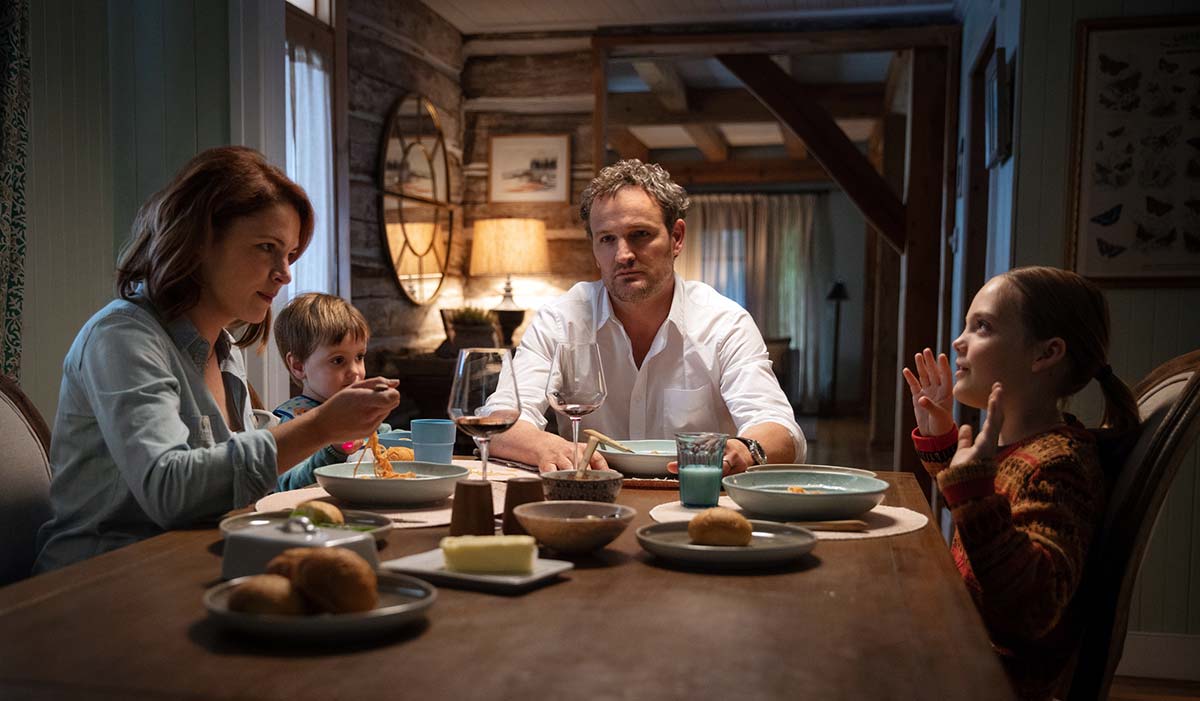Considering how it’s nearly asking for it, how it could have easily been used against it, to re-employ the iconic “sometimes dead is better” line from Stephen King’s “Pet Sematary,” as well as Mary Lambert’s 1989 film adaptation, in the marketing is a bold move. Fortunately, the sleek, well-crafted, if somewhat muted “Pet Sematary” update by Kevin Kolsch and Dennis Widmyer (“Starry Eyes”) nails the tone of one of King’s most sinister tales, creating a bleak depiction of our own mortality and the choices we make in life that will always haunt us.
READ MORE: SXSW Film Festival Preview: 16 Movies To See
The story is relatively the same as the previous adaptation, with Louis (Jason Clarke) and Rachel Creed (Amy Seimetz) moving from Boston to Ludlow, Maine with their two children, Ellie (Jete Laurence) and Gage (Hugo and Lucas Lavoie), and the family cat, Church. Unbeknownst to them, their new land houses a Pet cemetery (misspelled by the children who made the sign). When Church is hit by a car, their elderly neighbor Jud (John Lithgow) takes Louis to an ancient burial ground just outside the ‘Pet Sematary,’ but as the old man warns, these critters just “don’t come back the same.” When Ellie tragically gets hit by a truck, grief-stricken Louis is faced with the ultimate decision: say goodbye and mourn, or take her to the Pet Sematary for an aberrant resurrection.
READ MORE: The 100 Most Anticipated Films Of 2019
Kolsch and Widmyer’s film is appropriately comparable to Fede Alvarez’s remake of “Evil Dead,” in that the performances and technical execution get a huge upgrade, there are some legitimate surprises, but the drab color palette feels of a piece with other horror remakes, that sand off the idiosyncrasies of the original film. The directing duo also streamlines and condense the story to its core elements, stripping away some of the more extended mythology. For example, Victor Pascow (Obssa Ahmed)— the student who passed away on Louis’ operating table—is in the film, but only makes brief appearances, serving more like a haunting rather than a Greek chorus to explain the “rules” of the burial ground.
Though most of said deviations are smart and deliberate, specifically having Ellie be the child that dies instead of Gage. Being old enough and smart enough to have coherent thoughts makes her undead presence that much creepier and Ellie’s character serves as the mirror to hold up and reflect—not just the sins of bringing their deceased daughter back— but any transgressions from their past. Laurence is far and away the standout performance here, holding her own with Clarke and Seimetz and playing the duality of the living and the dead. Clarke and Seimetz are good, specifically Seimetz, and a great improvement over Dale Midkiff and Denise Crosby from the original, but some of their emotions are either too internalized or take a backseat to the filmic craft on display. The relentlessly bleak tone—punctuated by a terrific Christopher Young (“Hellraiser”) score—feels like it occasionally drains what should be strong emotions and grief. At times, it’s also difficult to tell if the shorthand being used for character development is subtle, or barely existent and will only be picked up on by people who have read the book. If it’s the former, it’s undeniably impressive.
One of the most surprising elements about this update is the dark sense of humor bubbling underneath. The deadpan nature of the style may work against the emotions from time to time, but it’s used to great effect when it comes to some of the pitch-black gallows humor line deliveries. Comedy also alleviates the relenting bleakness with precision and gives the film a much-needed shot in the arm of humanity when it feels like it’s dipping into strictly nihilistic territory. “Pet Sematary” is a wicked crowd-pleaser at the end of the day, which is both a compliment and a detraction. The straightforward genre elements click with skill, the atmosphere is moody and the long, still tracking shots create a sense of unease and tension. But, it does feel obligated to deliver on those elements more than it does to cut as bone-deep as King’s book. For as impressive and smart as the film is throughout, the weightlessness to the drama keeps it just out of arm’s reach of films that masterfully examine loss like “The Changeling,” but the craft at least firmly plants it in the upper-tier of contemporary horror remakes. [B-]
Click here for more of our coverage from SXSW 2019.





